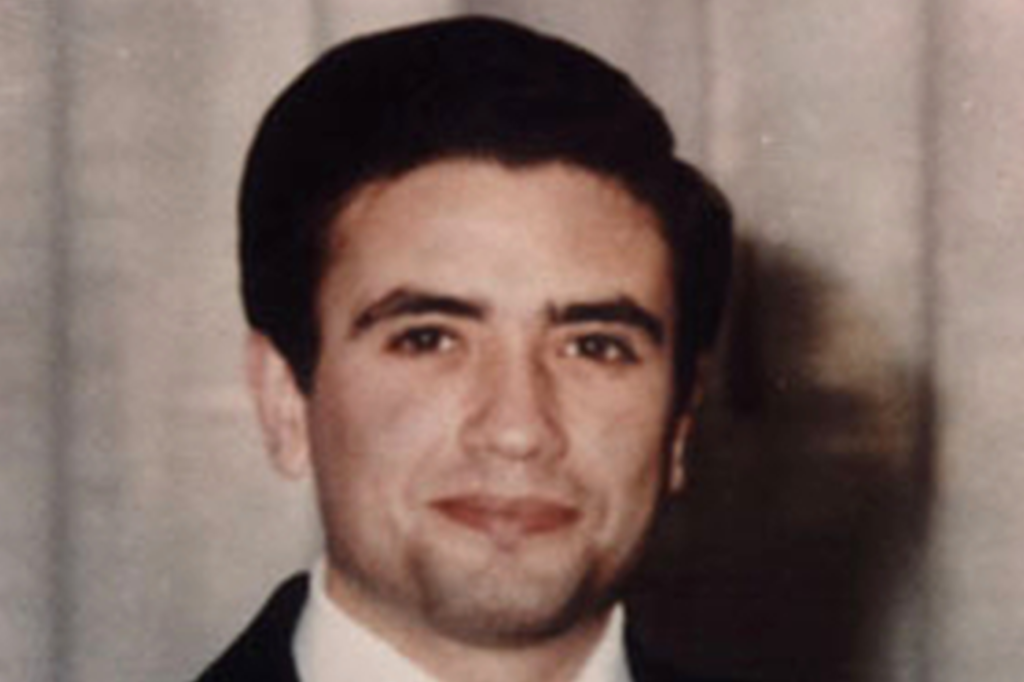On September 21, 1990, a few days before turning 38, Rosario Livatino was killed by the mafia on his way to work. A young judge in Sicily, he had taken his job quite seriously. His life was all work and family, the former in court and the latter at his elderly parents’ house, with whom he lived until the end. He had no siblings and, though he fell in love, never married.
This layman may soon be a saint. The cause for his canonization, which started in 2011, passed its diocesan stage and is now in the hands of the Roman Curia. However, this Servant of God can already be a model and source of inspiration for many lay men and women working for the promotion of justice. Indeed, some Italian lawyers and jurists have recently found the courage to establish a natural law think-tank bearing his name, the Centro Studi Rosario Livatino, which aims to engage current debates about controversial ethical issues by promoting a proper understanding of fundamental human rights.
Rosario was born to a middle-class Sicilian family, the only child of Rosalia Corbo and Vincenzo Livatino. He attended the local high school and graduated magna cum laude from the University of Palermo in 1975. Three years later, in 1978, he started his career as a magistrate in Caltanissetta. He worked as a public prosecutor in Agrigento and was later appointed judge, in 1989. Since his early childhood, Rosario was quite reserved. He was also a gifted student and often helped his friends with difficult readings rather than play soccer. In his adult years, he took care of his parents, spent long nights and holidays in court, and cared deeply about his faith.
His Christian life, however, was discreet, and he helped the poor of his town in secret. He chose to sit in the back rows. The pastor of the parish church in Agrigento (where Livatino spent time each morning before going to work) only discovered that he was a magistrate of high caliber after his death. Livatino’s personal diaries also report he spent a few years feeling that God was very distant and silent. His spiritual dry spell notwithstanding, he became a man of serious faith, living his work and everyday life as a personal path toward heaven. In everything he did in his daily routine, he knew that God’s sight was upon him. On his desk there was always a crucifix and the New Testament, the pages of which were underlined and crumpled, suggesting that he read it quite often.
Start your day with Public Discourse
Sign up and get our daily essays sent straight to your inbox.Most of what we know about Livatino’s life comes from accounts of people he met and from his diaries, which he started keeping in 1978. One passage emerges from that year, written in red: “Today I took the oath and I am a magistrate. May God assist me and help me respect this oath and to behave as demanded by the education I received by my parents.” These and other details of Livatino’s life were recently recounted in a book by Roberto Mistretta, written in collaboration with Giuseppe Livatino—a priest, a relative of the judge, and the postulator of the cause of beatification.
Livatino did not wish to act like a hero; he simply faced the realities of Sicily, where the mafia was deeply connected to both national and local politics.
Livatino did not wish to act like a hero; he simply faced the realities of Sicily, where the mafia was deeply connected to both national and local politics. Very soon he had to choose whether he would stand for law and justice or opt for convenience and personal safety. As is inevitable in a small Italian province, Livatino knew the identities of the mafia families and carefully avoided any questionable contact or dubious favors. He refused to attend local parties or events if he knew that local bosses would be invited. He did not stop investigating or prosecuting cases when the defendants’ affiliation with the mafia was clear, with all the risks that entailed. As a result, he was soon hated by the local bosses who eventually ordered his assassination.
The extraordinary character of Livatino’s ordinary life is revealed by the acronym he used on the pages of his diaries, discovered after his murder: “S.T.D.” At first, the police thought this could be a clue left by the judge himself to assist them in the investigations. They later discovered that it stood for Sub Tutela Dei, “under the protection of God.” This acronym reveals precisely how the young judge lived his life and work: under God’s protection. Interestingly, the Latin verb tueor also means “to be watched.” S.T.D., therefore, means also “under the sight of God,” and this largely describes how Livatino lived his daily duties.
When he spoke of his profession, and in particular of issuing judgments, Livatino said that it is one of the most difficult tasks that men are required to perform. He writes: “The duty of the magistrate is to decide; however, to decide is also to choose. . . . And it is precisely in this choosing in order to decide, in deciding so as to put things in order, that the judge who believes may find a relationship with God. It is a direct relationship, because to administer justice is to realize oneself, to pray, to dedicate oneself to God. It is an indirect relationship, mediated by love for the person under judgment.”
He continues:
And this duty will be lighter, as the judge will better and more humbly acknowledge his weaknesses, and present himself each time to the society that gave him such a scary amount of power, seeking to understand the man who is in front of him and to judge him without a superhuman attitude, but with constructive contrition. . . . And once more it will be the law of love, the vivifying strength of faith, that will solve the problem at its roots. Let’s remember Jesus’ words to the adulterous woman: “Let him who is without sin cast the first stone.” By these words, he indicated the deep reason of our difficulty: sin is shadow, in order to judge there is need of light, and no man is absolute light himself.
This light was the tutela Dei, the sight of God.
While these passages from a speech in 1986 reveal the depth of his commitment to truth and justice, as well as his awareness of our creaturely limits, his diaries reveal his profound humanity. Livatino had many fears and doubts. His heart was easily broken by women who did not return his feelings. As the day of his death approached, however, Livatino started acting as though he knew something would happen. He seemed less interested in marrying and founding a family, admitting that he did not want to leave orphans and widows behind him. Two years before his death, he also decided to receive the sacrament of Confirmation, as if he knew he needed the strength of a Soldier of Christ. Finally, the judge refused the bodyguard he was offered for his own security: he did not want other fathers to mourn the loss of their children because of him.
Two years before his death, Rosario Livatino also decided to receive the sacrament of Confirmation, as if he knew he needed the strength of a Soldier of Christ.
On that last day, he greeted his parents as usual and left for court in Agrigento. On his way, the judge’s car was rammed by the assassins, who shot at him through the windows, both from a car and from a motorcycle. He was wounded in his shoulder and, with terror and pain, left his vehicle and started to run away. While the killers chased him and kept shooting in his direction, he lost one of his shoes and eventually fell down. Then, looking at the man who was about to shoot the last bullet, Livatino asked “Guys, what have I done to you?” (“Cosa vi ho fatto, picciotti?”) There was no condemnation or hatred in his words.
Livatino lived his life according to what he once spoke: “On the day of our death, we will not be asked whether we believed, but whether we were credible.” He was indeed credible to the point where, after his death, Saint John Paul II called him “a martyr of justice and, indirectly, of faith.” Profoundly touched by the pain of Livatino’s parents, John Paul gave a powerful speech in the Valley of Temples, where he called for the conversion of all sinners—of all murderers.
Every canonization requires a miracle; at least one is attributed to Livatino’s intercession. Almost three years after his death, Livatino appeared to a courageous mother, Elena Canale Valdetara, who was terminally ill. She was then the mother of two natural daughters and had adopted two children with her husband: a girl with Down syndrome and very serious heart issues, and a boy born without legs and arms. Sometime before that dream, in 1993, she discovered she had lymphoma. She prayed and trusted herself to God. One night, she dreamt of a young man, who told her: “The strength that will cure you is within you. Once you find it, you will help more children.” She also saw herself attending a feast with her family on her silver wedding anniversary in 2000.
When Elena had this dream, she had no idea who the man was. In 1995, on the fifth anniversary of Livatino’s death, she saw his picture on a newspaper and recognized him. Elena weighed 84 pounds and, according to the doctors, had no hope but radiation treatment. She nonetheless decided to visit the Holy Land, and once she had returned, she knew that something had changed. She asked the doctors to take more tests. Though they initially resisted, they were surprised to discover that the cancer was gone. In 2000, Elena, who had set up a foster home, was healthy and celebrated her anniversary with her husband in Rome, just as she had dreamt.
On November 29, 2019, Pope Francis met the members of the Centro Studi Livatino at the Vatican. In his speech, the Holy Father mentioned Rosario Livatino’s opposition to euthanasia, which he held to be a violation of natural law. The Italian Constitutional Court recently decriminalized assisted suicide, although exclusively under certain conditions, and in limited cases. After quoting the judge’s words, the Pope noticed their distance from recent judgments, issued in Italy and in many other states, where a “creative jurisprudence . . . invents a right to die that lacks any juridical foundation.”
Livatino was not simply a just man, but a person of true charity, as demonstrated in several anecdotes and by the accounts of those who knew him. Though he was a judge, he judged facts, not the person. One day, finding himself next to the dead body of a mafia boss, and noticing that a police officer was rather happy about his death, he said, “Those who have faith shall pray, those who do not shall keep silent.” He once wrote: “Jesus Christ never said that ‘above all’ we must be just, even though on many occasions he exalted the virtue of justice. He instead elevated the commandment of charity to a mandatory norm of conduct, because that is the ‘qualitative leap’ of Christians.” There is a time for judgment, a time for love, and even a time for silence. Livatino knew when and how to practice each.













